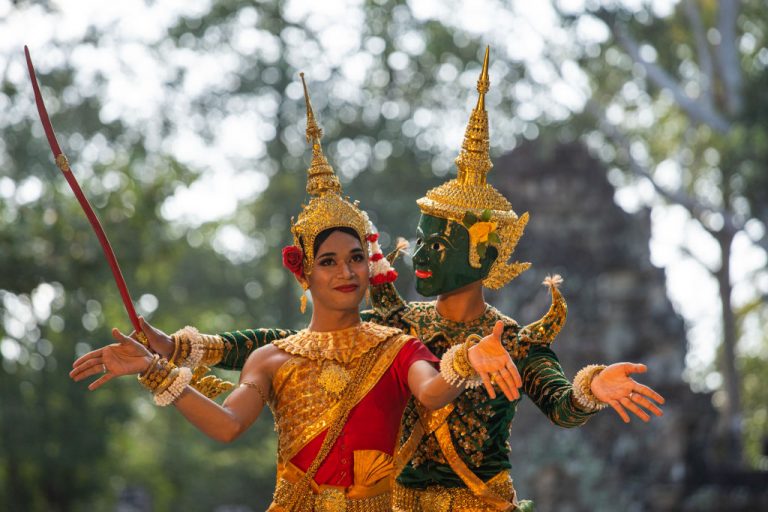The U.S. government imposed new sanctions on Cambodia on Thursday, Dec. 8, as Communist China’s sphere of influence, as well as its corruption and human rights abuses, continue to spread. The sanctions have put stress on U.S.-Cambodia relations, and raises concerns about the Chinese Communist Party’s (CCP) influence across Asia.
Military concerns
On Dec. 8, Cambodia was hit with an arms embargo established by the U.S. State Department, resulting in more trade restrictions on “military and dual-use items” for civilian and military use, the Commerce Department announced.
“Commerce has placed new restrictions, including end-use and end-user restrictions, on exports and reexports to Cambodia, and in-country transfers within Cambodia, of sensitive items subject to the Export Administration Regulations (EAR),” the department said.
According to sanctions expert Peter Kucik, any item that could be used for both civilian and military purposes would be restricted – the restrictions even apply to other third-world countries, who are now forbidden to sell certain products bought from the U.S. to Cambodia.
“Hypothetically, a divide that could have a perfectly civilian use, but could also have a military purpose, would be restricted because if it’s used by the wrong party, it could be used for military purposes.” Kucik explained.
Success
You are now signed up for our newsletter
Success
Check your email to complete sign up
The U.S. government cited developments in Cambodia’s military sectors potentially linked to China’s military presence in the country.
Cambodian Prime Minister Hun Sen has allowed access for the Chinese military to the Ream naval base in Sihanoukville for 30 years, and has provided the chance for China to build an airport and deep-sea port in Dara Sakor, near the province of Koh Kong.
The U.S. has also been banned from visiting the naval base at Sihanoukville after the U.S. previously imposed sanctions on senior Cambodian military officials.
In early November, an advisory to U.S. firms doing business in Cambodia issued a warning to businesses “to be mindful of interactions with entities in corrupt business practices, criminal activities and human rights abuses.” Two Cambodian officials were also suspected of planning to share funds from the Ream base construction project.
At the Ream naval base, structures that were previously funded by the U.S. were demolished in 2020. Later, in June, 2021, China was said to be aiding with the infrastructure of the base, as reported by the government-linked Fresh News.
In October this year, Hun Sen told Cambodians that the surge of Chinese workers coming to the country would “ease as Chinese construction projects are completed,” in an attempt to soothe anti-Chinese sentiment.
Cambodia has denied that its naval base would be used exclusively by China.
Several of Hun Sen’s closest associates, five military commanders and a timber tycoon, were also sanctioned by the U.S..
On Dec. 13, it was reported that Phnom Penh was reviewing their arsenal for any U.S.-made weapons and military equipment and will either store or destroy them.
A Chinese official said in a report by Khmer TImes that the U.S. “tried to tarnish Cambodia and China’s relations amid its imposition of the arms embargo against the Cambodian government.”
Cambodia and the world
In a statement to Radio Free Asia (RFA), Hun Sen’s foreign affairs spokesman denied the reports of foreign military presence in Cambodia.
However, Kucik believes that the trade restrictions could inhibit other entities from cooperating with Phnom Penh.
“It may be a stretch that violators get hauled into U.S. court, but people do get extradited from all over the world to the U.S., so it’s not intangible, there is a real risk.” Kucik said. “More realistically, and more fundamentally, you might kill your entire business model.”
“If you break U.S. law, you’re never going to get anything from the U.S. again and U.S. firms would be on notice that you’re off-limits,” he added.
In their opposition to the U.S., Cambodia has leaned towards China as a dictatorship looms over the country. In 2017, opposition leader Kem Sokha was arrested for treason and his party was eliminated, due to their supposed conspiracy with the U.S. to overthrow Hun Sen’s government.
According to Paul Chambers, from the Center of ASEAN Community Studies at Naresuan University in Thailand, Cambodia has become an “effective economic, military and political dependency” of China. He has also stated that the allegations made by the U.S. “should not be simply dismissed.”
China’s military presence in Cambodia could also contribute to tensions between the CCP and other nations around the South China Sea.
“Hun Sen has well positioned Cambodia as a useful cog in China’s attempts to dominate Southeast Asia and divide ASEAN,” Chambers added.
According to CCP-run news outlet Xinhua, Cambodia, which will assume chairmanship of the Association of South-East Asian Nations (ASEAN), will push to promote the bloc’s “spirit as a united family.” However, it is feared that Cambodia may be disrupting ASEAN due to its chairmanship of the bloc for 2022.
Derek Chollet, an envoy of the U.S. State Department, discussed with Cambodian officials issues like Myanmar and China. The junta-led government of Myanmar also has its fair share of human rights abuses and corruption after the military’s takeover of the country.
“We are concerned by the possibility of a PRC military facility,” Chollet said, using China’s official name, the People’s Republic of China (PRC).
“We believe it’s very important to be fully transparent about the intent and about the nature of that relationship, the scope of it as well, what’s going on,” he added.
On Dec. 7, Hun Sen met with a foreign minister of Myanmar’s military government, Wunna Maung Lwin, saying that Cambodia will engage directly with Myanmar to “[seek] ways to restore good cooperation and solidarity in ASEAN.”














